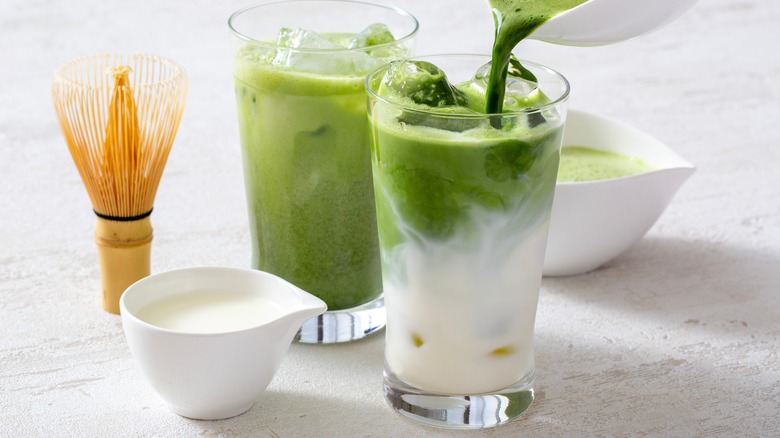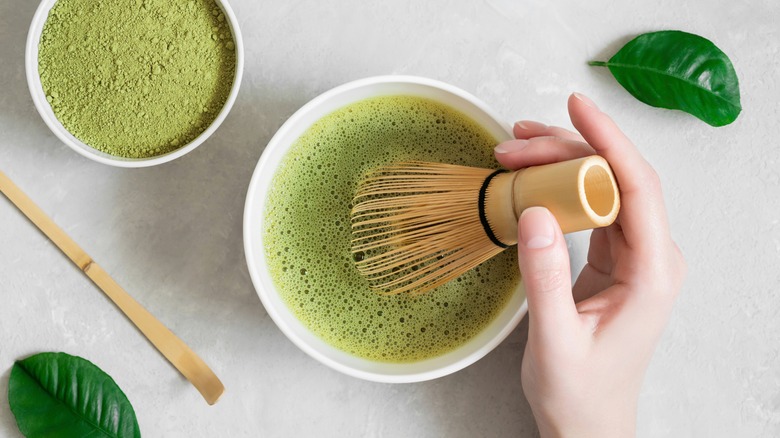Fix Bitter Iced Matcha With Some Sweet Pantry Staples
Matcha is a powdered form of green tea, which is ground from the whole tea leaf, giving it a stronger flavor, and higher amounts of nutrients and caffeine than other green teas. Historically, matcha was used for tea ceremonies in Japan, and this is where it is still primarily produced, although it has become increasingly popular around the world. From matcha drinks to matcha-flavored desserts, there's something available for every matcha fan.
If you've tried matcha before, you'll know that it has a prominent grassy and bitter flavor, especially when left unsweetened. That's why your homemade iced matcha latte might taste bitter on its own, but there's a simple fix. Add a little honey or maple syrup, which will neutralize the bitterness and give you a perfect balance of flavors for your energizing drink. After adding your whisked matcha to an ice-filled glass with milk, drizzle in as much sweetener as you'd like for a bitter-free iced matcha. If you find other forms of matcha like matcha tea too bitter, use this same trick to sweeten things up.
How to avoid bitter matcha
While sweetening your iced matcha and other drinks is a great way to counteract any bitter flavor, there are also a few things you can do when preparing your matcha to reduce its bitterness. You might be tempted to mix your matcha into boiling water as you would regular tea, but this will bring out matcha's bitterness. Instead, try using water at 176 degrees Fahrenheit (80 degrees Celsius) or lower. In fact, for your iced matcha, you can use completely cold water.
Another factor that might be adding to your iced matcha being bitter is going too heavy-handed with your matcha powder. The more matcha you add, the stronger its flavor will be. So, if you're a beginner in the matcha world, start with about ½ teaspoon per 6 ounces of milk. You can gradually build it up from here.
The type of matcha powder you use for your matcha drinks will also make a world of difference in flavor. The first type, culinary grade matcha, is lower in quality and higher in bitterness — which is why it is used in baked goods, like matcha crepes or ice cream. Ceremonial matcha, on the other hand, will be your best bet when making iced matcha or matcha tea, as it's the highest quality and has a naturally sweeter taste. Even with the correct preparation, your matcha drink might still taste bitter depending on your preference and taste buds, so don't be shy with your honey or maple syrup. Matcha is an acquired taste after all.

